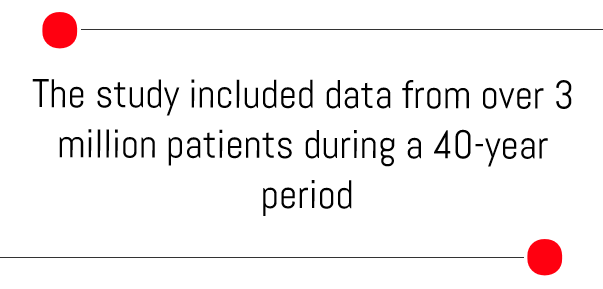
Mental states can have a strong effect on physical health, and diseases brought on by mental factors are referred to as a psychosomatic disorders.
But in some cases it can be the other way round, with physical illness causing an unusual amount of psychological stress.
People with lung cancer have a strikingly higher-than-normal risk of suicide, a new study finds.
While a cancer diagnosis on its own significantly raises the risk of suicide, the study found that a lung cancer diagnosis raised the odds of suicide by over four times compared to people in the general population.
A tough diagnosis to manage
"A cancer diagnosis is an overwhelming diagnosis for patients psychologically and emotionally," explained study senior author Dr Jeffrey Port.
"It is a very tough diagnosis for patients to manage, and there is a higher suicide rate," he added.
Port is a professor of cardiothoracic surgery at Weill Cornell Medical Center in New York City.
The study included data from over three million patients during a 40-year period. Cancer diagnoses were linked to over 6 600 suicides. Although the study wasn't designed to prove a direct cause-and-effect relationship, the researchers found that cancer was associated with double the risk of suicide.
Reasons for high suicide risk
Among lung cancer patients, certain groups were much more likely to take their own lives. These groups included Asians, people whose cancer had spread to other areas of the body (metastatic), patients who refused surgery, older patients, widowed patients and men.
Port believes the suicide risk is so high for several reasons:
- Most people consider cancer a devastating diagnosis with very little hope.
- Lung cancer is a disease that many believe is the result of smoking, so there is a tremendous amount of guilt.
- Many lung cancer patients have other significant medical issues due to smoking, such as heart disease; they therefore feel overwhelmed and become convinced that their bodies can't handle the treatment.
- There are limited support groups, marches and solidarity for lung cancer.
Dr Jorge Gomez, assistant professor of medicine at Mount Sinai Hospital in New York City, said similar studies have found that the risk of suicide is higher in the beginning of cancer treatment, between the first six months to a year after diagnosis.
High levels of distress, anxiety and depression
"Suicide that happens in the beginning of treatment is mainly caused by stress, depression, anxiety and hopelessness," said Gomez, who is also a spokesman for the American Lung Association. "There are also patients who consider suicide at the end when they are suffering significantly."
Gomez stressed that it's important for family members, friends or caretakers to look for warning signs so the depression can be treated immediately.
"Look for signs of depression, mood changes, increased sleep, decreased appetite, decreased mood," Gomez cautioned.
While the focus of the new study is about suicide, Port hopes this research will shed light on another, more common problem for patients diagnosed with lung cancer: how the high levels of distress, anxiety and depression associated with this diagnosis affect treatment.
Signs of depression
According to a Health24 article, if depression is suspected, a health professional will do a full evaluation, including questions regarding family history, personal history of illness and recent stressors.
Specific diagnostic criteria have been set down in the DSM–V (Diagnostic and Statistical Manual of Mental Disorder, 5th edition) to diagnose a Major Depressive Episode. These are described below:
The presence of five of the following nine symptoms occurring for most of the time during the same two week period, resulting in a change in the level of functioning. The symptoms cause significant distress or obvious changes in social and occupational functioning. At least one of the symptoms has to be “depressed mood” or “loss of interest or pleasure”:
- A depressed mood (possibly irritability in children)
- Loss of interest or pleasure in previously enjoyed activities
- Appetite changes with significant weight loss (when not dieting) or weight gain
- Increased sleep or insomnia
- Slowing or speeding up of physical activity
- Fatigue or loss of energy
- Feeling of worthlessness or excessive or inappropriate guilt, Decreased ability to think or concentrate, or indecisiveness.
- Recurrent thoughts of death or recurrent suicidal ideation
Read more:




 Publications
Publications
 Partners
Partners












